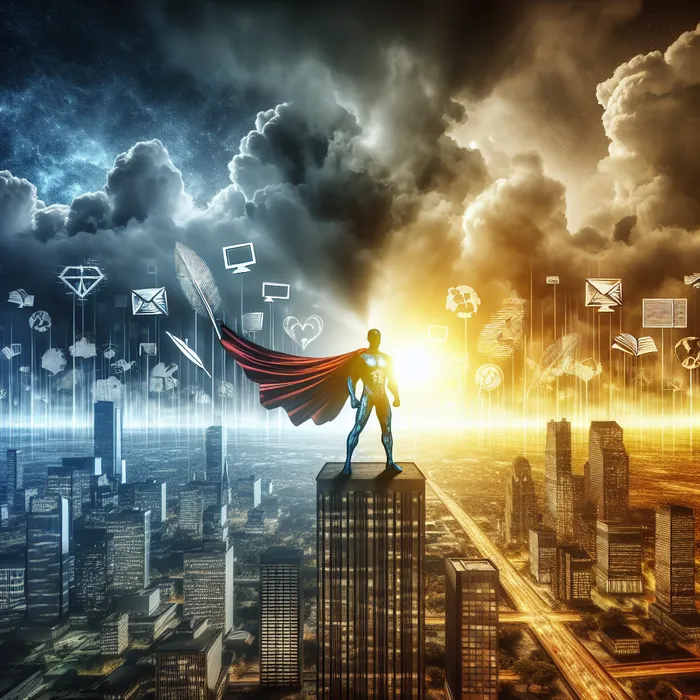What lessons can we learn from Superman about global crises and misinformation?

We delve into how Superman's cinematic returns reflects the pressing issues in the real world.
Image: IOL
Superman is better than all of your favourites combined. Okay, now that I have your attention.
Superman has been in South African and worldwide cinemas for a few weeks, prompting fans of both James Gunn and Zack Snyder to come out in full force.
Previous adaptations leaned into moral ambiguity, questions of existence, and had flashy fights in dim lighting as well as a storyline with a fight famously resolved by simply invoking the name "Martha." However, this Superman movie brings him back to his classic identity and concentrates on what makes us human, which is ironic, seeing as he is an alien. At its core, it's a message of hope - hope for the future, hope for mankind and hope for a better world.
But then reality hits when you step out of the cinema: We don't live in Metropolis. We don't have Superman. And the world continues to grapple with war and misinformation.
The past few years have been defined by global unrest, with headlines dominated by heartwrenching images of war and despair. War rages in Palestine and conflicts engulf African countries and other parts of the world. The Palestine-Israel war has resulted in thousands of deaths, humanitarian crises escalating, and reports of starvation.
Additionally, media institutions struggle under the weight of political polarisation and misinformation in the age of AI. In light of this, Superman’s dual identity as both a caped hero and journalist, Clark Kent, takes on an interesting and new relevance.
When Superman is not saving the world, Clark Kent, a reporter for the fictional 'Daily Planet', is the embodiment of ethical journalism (okay, that ethics line gets blurred when he technically interviews himself, but we digress.)
In today’s media climate, where public trust in journalism dwindles thanks to AI and misinformation on social media, Kent’s role serves as a reminder of what journalism could and should be. It's standing for what's right, even if there is a megalomaniac figure like Lex Luthor out to get you. And in the real world, there are definitely several Lex Luthors and Vasil Ghurkos.
This intersection of truth and heroism comes at a critical time. A recent Pew Research Center study found that only 26% of Americans say they trust national news organisations “a lot.” According to a Statista report, Nigeria recorded the highest trust in news at 68%, followed closely by Scandinavian countries like Finland, Denmark, and Norway. In contrast, Hungary and Greece had the lowest trust levels at just 22%, partly due to concerns over media independence.
If we take a look at local statistics, trust in South African media has seen a slight decline recently, with an overall trust score of 55%, a 6 percentage point drop from the previous year's 61%.
Disinformation on social media continues to rise, while global conflicts are increasingly shaped by information warfare.
“Hope isn't naïve,” said Gunn in a press statement last year. “It’s essential. Especially when the world feels like it's burning.”
The upcoming film reportedly leans into these ideals of hope, positioning Superman not as this detached godlike figure with amazing powers and laser eyes, but as someone who wrestles with how to help in a world that sometimes resists truth itself.
Of course, we know that Superman's return doesn't offer solutions to our global crisis. He won't swoop in to stop the war in Gaza, he won't get his tech friends to tackle misinformation, and he cannot help feed starving people. But while fictional, his story (specifically this one) gives a real lesson: true justice doesn't come from power, it doesn't come from money. It comes from compassion and humanity. Or in South Africa, we would just say "Just be lekker."
IOL
Related Topics: